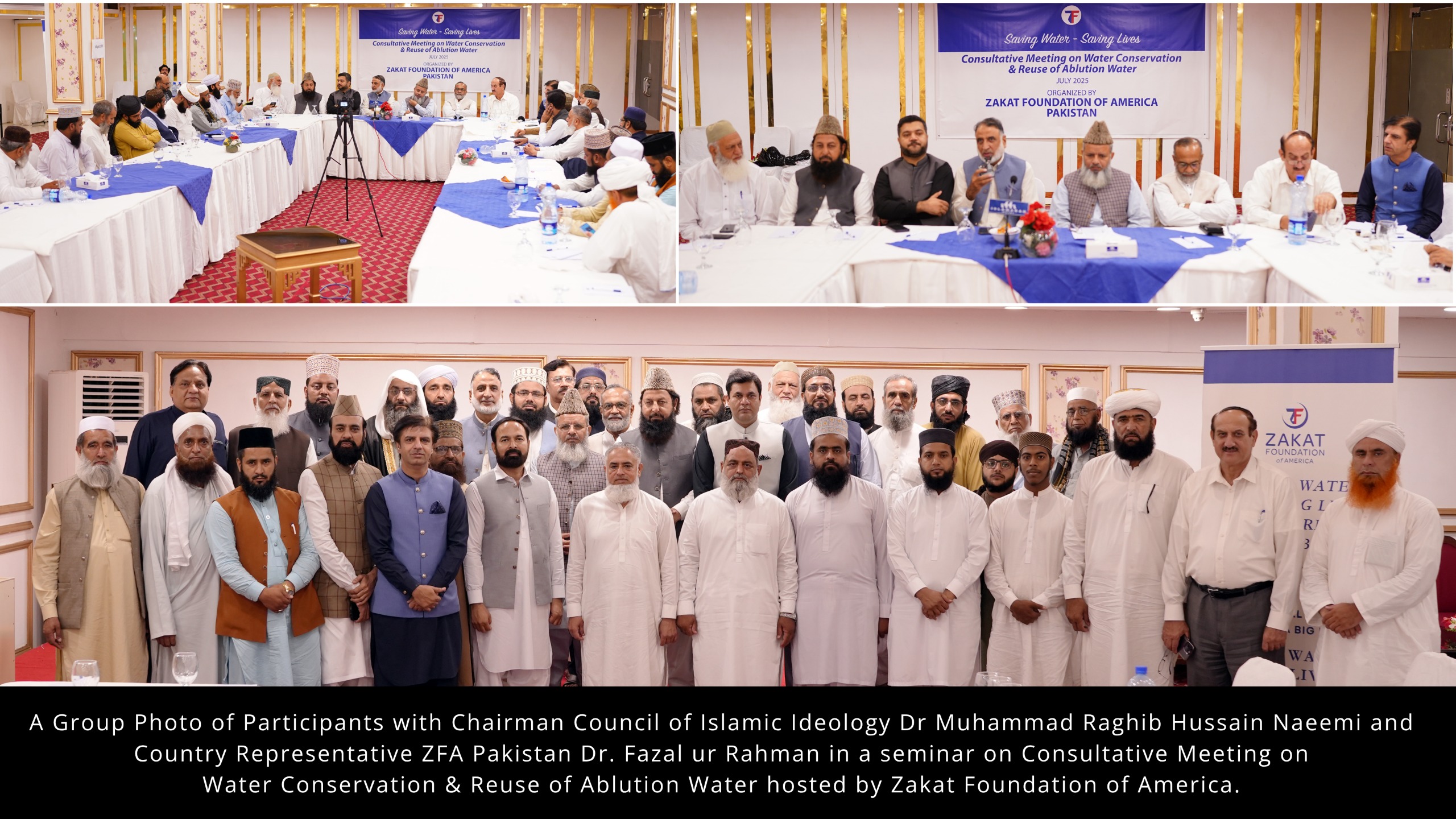Islamabad -UNS:In a pioneering move combining Islamic teachings with environmental stewardship, the Zakat Foundation of America organized a high-level consultative session today focusing on the conservation of ablution (Wudu) water, its sustainable use, and broader strategies for water preservation in Pakistan.
The event brought together religious scholars ( Ulamah) from various Masajid and Madaris based in Islamabad and environmental experts from universities including environmental activist Dr. Rehan Tahir, Dr Adil Naseer from Bahria university and Dr. Irfan Khan (former Dean, International Islamic University Islamabad). The keynote address was delivered by Dr. Muhammad Raghib Hussain Naeemi, Chairman, Council of Islamic Ideology, who graced the session as the chief guest.
“Water is a divine blessing and a shared responsibility,” said Dr. Fazal ur Rehman in his opening remarks. “Through practical steps and faith-based awareness, we can protect this vital resource for future generations.”
Participants emphasized the need to prevent the wastage of Wudu water and highlighted practical solutions such as installing greywater recycling systems in mosques. These systems would allow the reuse of ablution water for landscaping, sanitation, and other non-potable applications, aligning environmental sustainability with religious values.
A major outcome of the session was the announcement of a pilot project in Rawalpindi and Islamabad, which aims to implement rainwater harvesting techniques in Masajid and also use various techniques and methods to save Wudu water and reuse of Wudu water in various institutions. If successful, this model will be scaled across Pakistan.
Mufti Zameer Sajid member Ruet-e- hilal committee, supported the initiative under the theme “Safe Water, Safe Life”. He stated, “Conserving Wudu water is not just an environmental need—it is a religious responsibility. We must act with wisdom and foresight to preserve Allah’s blessings.”
Dr. Raghib Naeemi appreciated this initiative by Zakat Foundation of America to involve religious and environmental scholars on a around-table and also praised the overwhelming participation of Ulama who are real source of inspiration and a continued source of teaching on environmental responsibility through lectures and Friday sermons (Khutbahs). He called for “Imams and scholars play a critical role in shaping public consciousness on this issue. Their voices, rooted in faith, can inspire action and change at the grassroots level,” he said.
This session represents a vital step in bridging Islamic teachings and ecological ethics. It marks the beginning of a transformative journey toward sustainable water use and communal responsibility, rooted in both science and spirituality.




